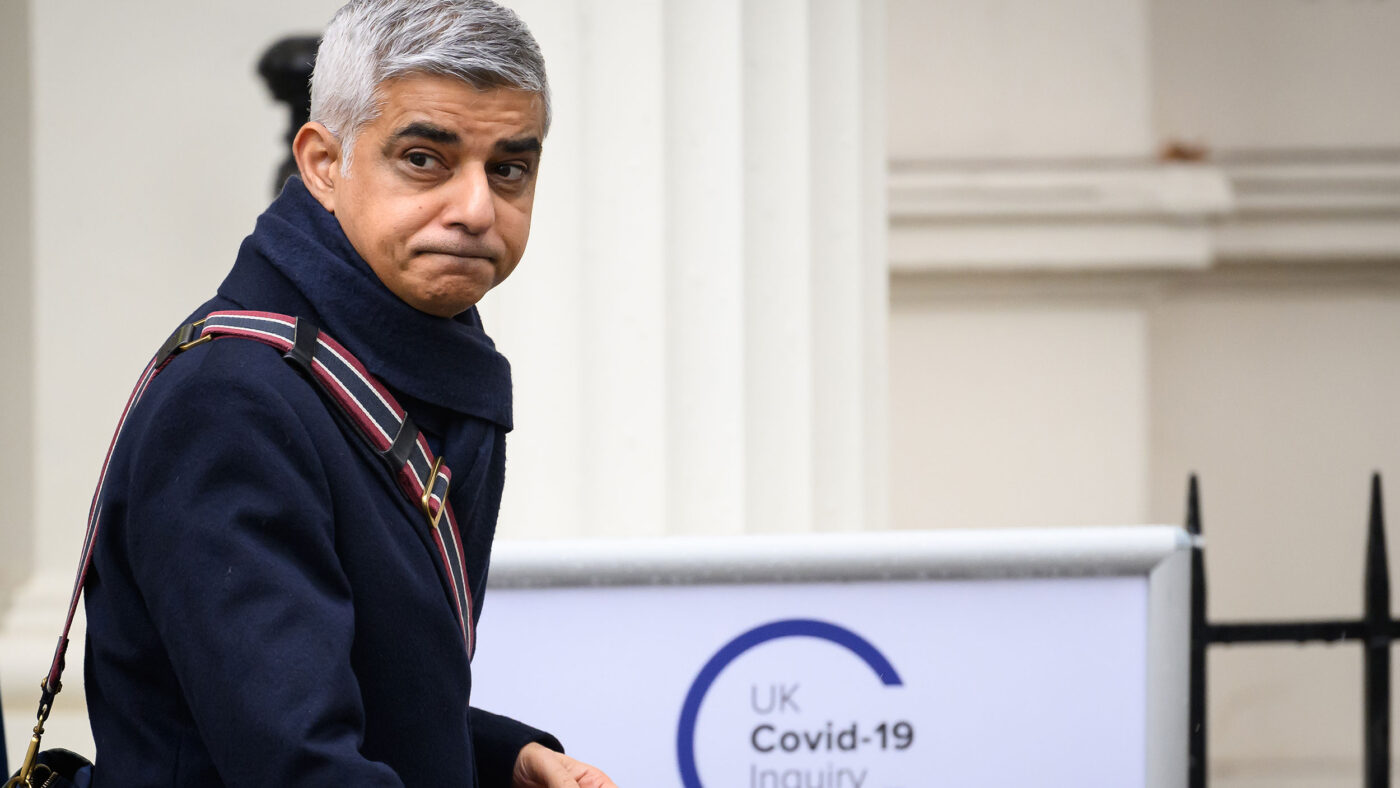A startling claim from the Mayor of London. Sadiq Khan has said to the Covid inquiry that ‘lives could have been saved’ if he had been invited to various Cobra meetings. Even from this most egotistical and self-important of politicians this was a bizarre statement. His evidence was made under oath so I suppose we must accept it was sincere. But it is not credible. If he was not lying then he certainly showed himself to be deluded.
The first lockdown began in the UK on 23 March 2020. There was a Cobra meeting on 9 March that year to which Khan was not invited. His case seems to be that with his unique insights, he would have persuaded the Government to lockdown earlier and that would have prevented deaths.
He asked the Inquiry, if those at the Cobra ‘know most people in London travel by bus or tube?’ He added, ‘How many of those around Cobra knew issues around diversity, comorbidity, intergenerational households, overcrowded accommodation?’ Did they know about the large number of Londoners who ‘work in the gig economy?’ If only he had been ‘around that table’ he thinks ‘lives could have been saved.’
There was no convincing response as to why he felt other Metro Mayors should not then also have been invited to show off with their expertise about demographics of Bristol, Manchester, Liverpool and Birmingham. ‘It’s horses for courses,’ was his enigmatic response.
Then a few hours later, we had Andy Burnham, the Mayor of Greater Manchester, in his evidence to the inquiry also complaining about being excluded. ‘Our worry was that there was a London-centricity in decision-making,’ said Burnham.
Imagine how much more annoyed Burnham would have been about being kept out if Khan had been let in. At this time of national emergency, should the Government really have said: ‘Roll up, roll up. More the merrier.’ It’s an unusual formula to increase the effectiveness of a meeting.
Given that Boris Johnson, the Prime Minister at the time, was a former Mayor of London, might he not have already had a reasonable awareness of the distinct economic and social characteristics or the Capital? With such cabinet colleagues as Priti Patel, Rishi Sunak, Kwasi Kwarteng and James Cleverly was it really vital to hear Khan tell them that London was a diverse city?
Was Khan aware of any genuinely relevant information? He boasted to the inquiry of ‘speaking to the mayor of Milan, we were speaking to colleagues in Seoul, the mayor of Seoul, and colleagues in China.’ But this was in March. He admits: ‘In February I wasn’t chasing the government. I wasn’t aware how serious it was.’ Again it seems doubtful he would have had much to add that the Foreign Office with its extensive network of diplomats had not managed to get hold of.
Even if Khan’s presence in Downing Street on 9 March had prompted such deference that an earlier lockdown had been agreed it is contentious whether that would have saved lives overall.
International comparisons do not give much evidence for this. Not just the data from Sweden. But the comparisons in the United States between, for instance, New York and California, with strict lockdowns, and Florida and Texas which adopted a more liberal approach.
The debate was often framed as ‘lives versus livelihoods’. But we know that life expectancy is increased by economic growth and diminished by poverty. Khan’s answer to the economic cost was to demand ever-greater subsidies from central Government. Yet, it’s estimated that the lockdown meant around an extra £400bn in public spending. It’s interesting that Labour politicians, who were such lockdown zealots, complain about the higher level of tax resulting.
Furthermore, we are still seeing excess deaths from cancer and other diseases as a result of people skipping checkups.
This is the wider issue the Inquiry should be considering. The trouble is that the assumption of much of its questioning is that the lockdowns should have been longer and stricter. There appears to be a lack of rigour, balance and open-mindedness towards those sceptical of the whole extraordinarily draconian endeavour.
Khan is puffed up with moral indignation and quick to make assertions about the failings of others. But his own record during the pandemic was discreditable. One of his earlier decisions was the scaling back of services on London tube and buses. This was not due to staff shortages (Transport for London is ridiculously overmanned.) It was a deliberate choice. The idea was to give a ‘nudge’ to people to stay at home. But the result was that millions of ‘key workers’ who were required to go to work had to do so on crowded buses and trains without the chance of ‘social distancing.’
When we had the omicron variant, Khan did all he could to spread alarm and despondency on the basis of modelling that proved to be wildly inaccurate. Khan demanded that face masks be worn on the tube long after the dreary practice had been ditched elsewhere. Some studies now cast doubt on whether they were of any value anyway.
Thus amidst all the grandstanding from Khan his own record and judgement was lamentable. Lots of pious press releases demanding money but no practical assistance of realistic proposals.
Yet it is not just the Mayor but the Covid Inquiry itself, at a staggering cost to the taxpayer, that is letting us down. It is getting caught up with process – status, rivalry and blame shifting. It should focus on the issues of substance to help us avoid repeating such a grim experience ever again.
Click here to subscribe to our daily briefing – the best pieces from CapX and across the web.
CapX depends on the generosity of its readers. If you value what we do, please consider making a donation.


